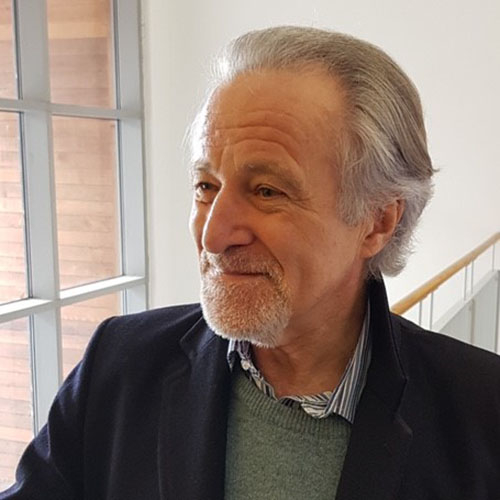The Event and Managerial Reason: J.M. Coetzee’s ‘The Vietnam Project’ and The Childhood of Jesus
Friday 23 August, 2019, Female Orphan School, Western Sydney University, 11:00-12:30pm
The past half-century has seen the rise to prominence of the concept of the event. This introduces a crucial element of groundlessness, chance, the aleatory, non-necessity into being. The world comes about as it is, not on the basis of prior determinations, as above all in theology and conservative politics, but on the baseless basis of the void. Here, however, I’ll start out, not from philosophies of the event qua philosophies, but from the event as cultural symptom; a symptom that also has its counter-symptom. We might put the point like this: the concept of the event has had a certain currency in the culture over the past three or four decades or more; this, not only in philosophy and theory and criticism, but in the arts, and even in certain specific forms the sciences. But elsewhere or in the larger culture, we have seen the effective growth of a formidable resistance to the concept, if a resistance that is largely implicit, not articulated as such, even in large measure unknowing. Our period might actually seem to be strikingly obtuse to the event or the conditions of the event, and much inclined to disbelieve in or even discredit them. The concept of the event comes philosophically to the fore and is properly formalized precisely in an age notably and even intransigently hostile to events as such. The resistance has many aspects, ranging from the effects of the wholesale mediatisation of culture to the massive growth of the culture of security to the new technology spreading new forms of control of the alea to that minor variant, the `anti-evental’ backlash in literary theory and criticism. A major if not the principal form of it, however, as is becoming clear to us from some admirable work (Enteman, Locke and Spender, Klikauer) is managerialism or managerial reason.
This talk gets its orientation from one question: where does the most significant English-language novelist of the period stand in relation to the structure of opposition (and the paradoxes) I have outlined? In a very interesting and complex position, I’ll suggest, that is all his own. I’ll give a very brief survey of the two sides of contemporary culture’s paradoxical relation to the event. I’ll also very briefly place my own case in relation to Derek Attridge’s concept of Coetzee and the event in his notably important and influential book J.M. Coetzee and the Ethics of Reading. Coetzee’s treatment of the possibility of the event in my sense is oblique, indirect, multi-faceted, very subtle but very slight. I don’t expect to be able to sum it up or even adequately represent it here. I’ll aim however to talk about two aspects of it, both of which in effect involve taking a position relative to the contemporary paradox and institute a more or less devastating critique of managerial reason. I will particularly look at the first part of Dusklands, and the relation of Eugene Dawn to the American military’s OR (Operational Research), now credited with being one of the origins of contemporary theory of management; and at The Childhood of Jesus, looking particularly at the relevance to it of a reading of Leibniz on the one hand, and Miguel de Unamuno’s reading of Don Quixote on the other.
ANDREW GIBSON is Professor of Modern Literature and Theory at Royal Holloway, University of London. He has held visiting professorships and honorary appointments at the College Internationale in Paris, Northwestern University in Chicago and Tokyo University among other institutions. He’s currently a Visiting Professor to the J.M. Coetzee Centre for Creative Practice at the University of Adelaide, where he is giving a series of masterclasses on the fiction of J.M. Coetzee. Andrew is a permanent advisory editor to the James Joyce Quarterly and was recently appointed Associate Member of the Beckett International Foundation at the University of Reading.
All welcome. info: writing@westernsydney.edu.au

